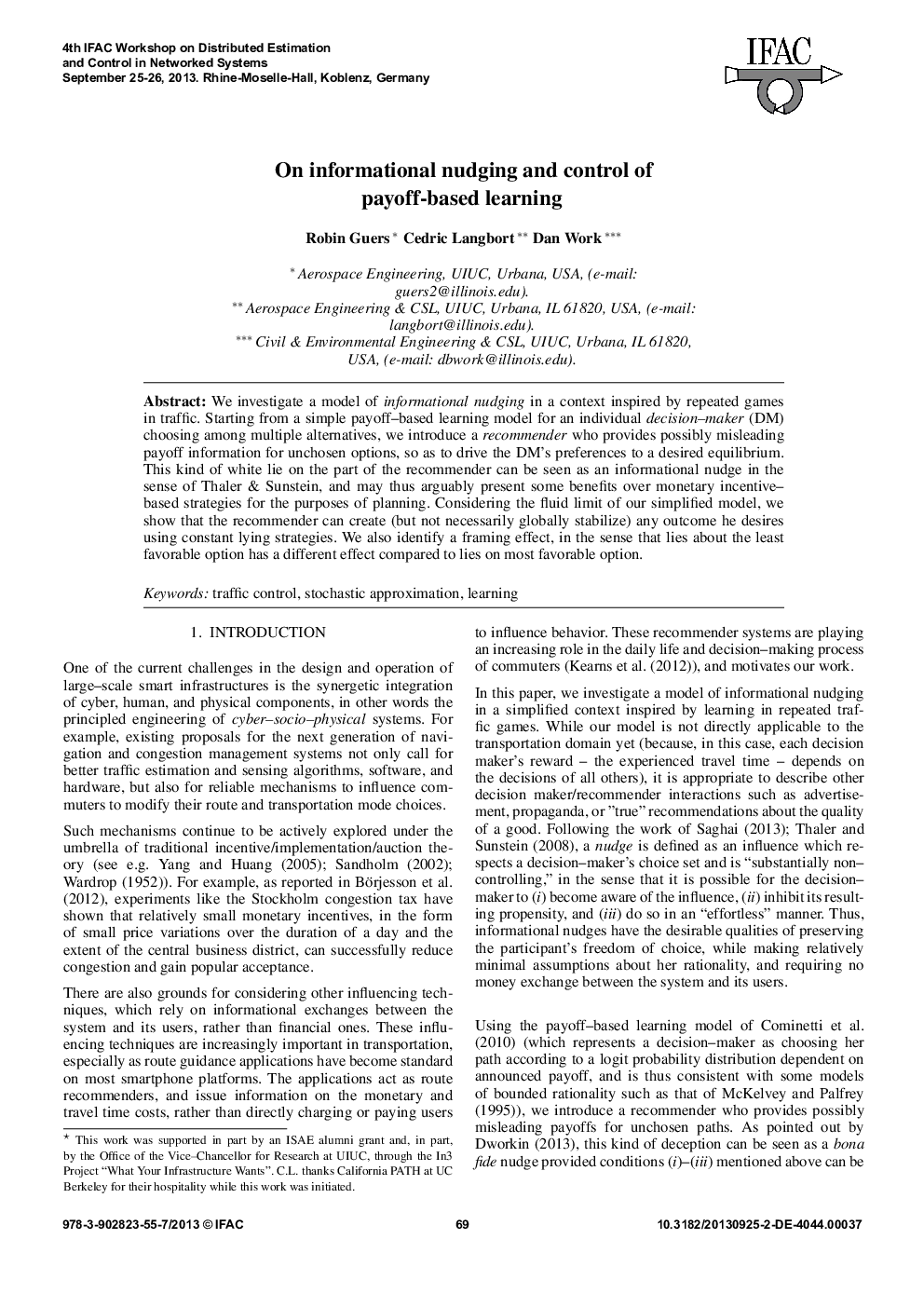| Article ID | Journal | Published Year | Pages | File Type |
|---|---|---|---|---|
| 714713 | IFAC Proceedings Volumes | 2013 | 6 Pages |
We investigate a model of informational nudging in a context inspired by repeated games in traffic. Starting from a simple payoff–based learning model for an individual decision–maker (DM) choosing among multiple alternatives, we introduce a recommender who provides possibly misleading payoff information for unchosen options, so as to drive the DM's preferences to a desired equilibrium. This kind of white lie on the part of the recommender can be seen as an informational nudge in the sense of Thaler & Sunstein, and may thus arguably present some benefits over monetary incentive–based strategies for the purposes of planning. Considering the fluid limit of our simplified model, we show that the recommender can create (but not necessarily globally stabilize) any outcome he desires using constant lying strategies. We also identify a framing effect, in the sense that lies about the least favorable option has a different effect compared to lies on most favorable option.
